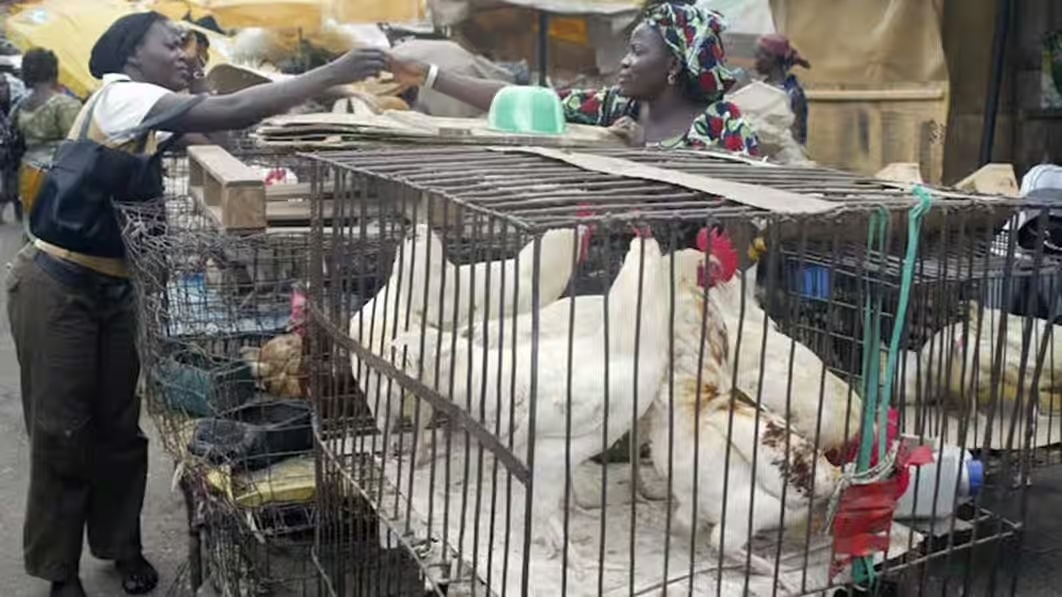
• Projected To Create $190b By 2050, Contribute $41b In Sub-Saharan Africa
For two days, researchers, farmers, traditional rulers, businessmen and women stakeholders converged at the National Root Crops Research Institute (NRCRI), Umudike, Abia State, for the 2024 Annual Research review and planning workshop, to dialogue on ways and means to uplift Root and Tuber Crops (RTCs), which are major foods and sources of raw materials in Africa.
According to the organisers, the workshop was an avenue to solve problems facing farmers and other end-users on root and tuber crops technologies, which NRCRI has been statutorily mandated to research into for the past 100 years.
Speaking during the kick-off of the workshop, with the theme: “Advancing Sustainable Root and Tuber Crops-based Farming Systems in Nigeria – A Pathway to Resilient Agri-food System,” the Chief Host and NRCRI Executive Director/Chief Executive Officer, Professor Chiedozie Egesi, said the yearly workshop provides opportunity for reviewing the research results and new technologies developed by the Institute, to tackle the hitches in national food security, alleviate poverty and increase youth economic empowerment.
Prof. Egesi said RTCs will deliver the main share of food security, incomes and climate resilience to smallholder farmers and food systems, which he forecast to create close to $190b in additional market value by the year 2050.
He added that when compared with cereals, RTCs will expectedly contribute $41b in Sub-Saharan Africa and that their role as the focal centre of food systems in Africa would only increase as they thrive under the daunting growing conditions and increasingly unpredictable weather extremes female and male farmers endure because of climate change.
According to him, in line with the NRCRI mandate to research into the genetic improvement, production, processing , storage , utilisation and socio-economics of RTCc for economic importance, “NRCRI funded at least 140 research and development projects across different areas of RTCs in the country, adding that to sustain research activities in the face of economic situation, it attracted 10 externally funded projects in different areas, including breeding , biotechnology, product development, seed systems and climate adaptation research to complement Federal Government efforts to deal with issues on food and nutrition security.
He listed another specific mandate of the Federal Government to NRCRI to include – provision of planting materials (Seeds) of improved cassava varieties sufficient for 20,000 hectares across Nigeria, as part of the National Agricultural Growth Scheme – Agro Pocket (NAGS-AP).
Also speaking, the Executive Secretary of the National Agricultural Research Council (NARC), Professor Garba Hamidu Sharbutu, who represented the Minister of Agriculture, Dr Abubakar Kyari, called for a collaboration of research Institutes and the universities to establish a sustainable food value chain for national survival.
He appealed to the Abia State Governor, Dr Alex Otti to register his administration’s presence in NRCRI by building what he called Researchers’ Lodge/Hostel to serve local and international researchers visiting the Institute.
The keynote Speaker, Dr Kent Nnadozie, who is the Secretary, International Treaty on Plant Genetic Resources, Food and Agricultural Organisation of United Nations in Rome, said the world is facing unprecedented confluence of threats from complex and interconnected factors that include – population increase projections, conflicts, rural poverty, migration, consequences of climate change among many others.
According to him, while fewer crops are feeding more people worldwide, 400,000 plant species were globally identified, noting that humans have utilised more than 6,000 plant species to meet their basic food needs, either by cultivation or gathering.
On the present scenario, Dr Nnadozie said it is only about 150 plant species that are under reasonably extensive cultivation, while only nine species supply nearly 66 per cent of the total crop production, adding that “no region or country is self-sufficient as all countries are interdependent.”
Earlier, while declaring the workshop opened, the Abia State Governor, Otti, represented by his Special Adviser on Agriculture and Food Security, Chief Cliff Agbaeze, called on all and sundry to collaborate efforts towards addressing the threat of increasing hunger in the land and also sustain continued efforts in the drive to turn around the fortunes of the over 200 million Nigerians.






